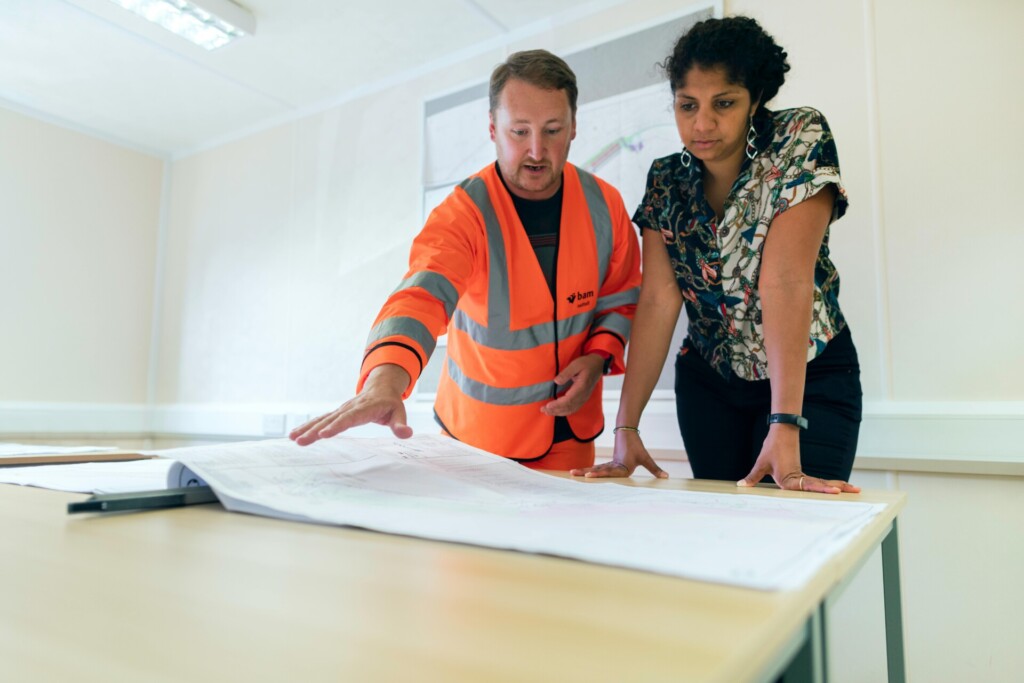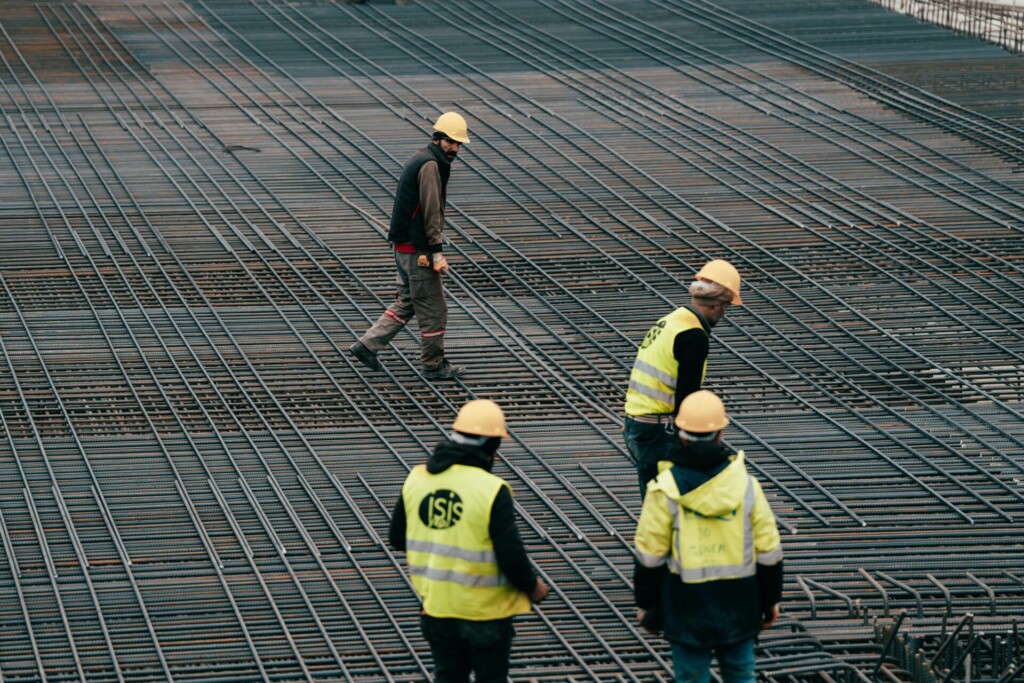The Dallas-Fort Worth metroplex boasts a thriving construction sector full of opportunities for small business owners. As cranes dot the skyline and new developments arise across North Texas, entrepreneurs in the building trades have access to numerous resources to establish and grow their operations. From industry groups to financing options, Dallas provides a robust support system for construction companies of all sizes.
At EB3 Construction, we have observed firsthand how the right local resources can propel a small contracting business forward. The Dallas market offers unique advantages, including a steady stream of projects and a deep talent pool of skilled workers. However, navigating regulations, securing funding, and building a client base are challenges for new entrants.
This guide will explore the key resources available to help construction entrepreneurs succeed in Dallas’ dynamic market. We’ll cover industry associations, financing programs, training opportunities, and other support services tailored to small business needs.
What Financial Resources Are Available for Dallas Construction Businesses?

For construction businesses in Dallas looking to grow or manage cash flow, multiple financial resources are available. We’ve compiled an overview of key programs and institutions that offer capital access and financial backing for small businesses in the construction industry.
Texas Small Business Credit Initiative (TSBCI)
The TSBCI represents a significant investment in Texas’ small business ecosystem, with the potential to deploy over $472 million in funding. This initiative focuses on enhancing access to capital, particularly for traditionally underserved businesses and those affected by the COVID-19 pandemic. Through participating financial institutions, the TSBCI operates two main programs:
- Capital Access Program (CAP): Provides portfolio insurance for business loans up to $5 million
- Loan Guarantee Program (LGP): Offers guarantees of up to 80% on loans ranging from $5,000 to $20 million
These programs aim to reduce lender risk, encouraging financial institutions to extend loans to small construction businesses that might otherwise struggle to access capital.
U.S. Small Business Administration (SBA) Resources
The SBA operates six offices in Texas, offering a range of services tailored to small business needs:
- Counseling and mentorship
- Access to capital through various loan programs
- Contracting expertise to help businesses secure government contracts
- Training programs on business management and growth strategies
SBA loan programs can be particularly beneficial for construction businesses, offering competitive terms and flexible use of funds for equipment purchases, working capital, or real estate acquisition.
Community Development Financial Institutions (CDFIs)
CDFIs are non-profit lenders that specialize in serving businesses in underserved communities. For construction businesses, CDFIs can offer:
- Loans with favorable terms, including lower interest rates
- Flexible underwriting criteria that may be more accommodating than traditional banks
- Additional support services like business advice, mentoring, and workshops
These institutions focus on fostering economic growth in specific communities, making them valuable partners for local construction businesses.
Additional Texas-Specific Programs
Several state-level programs provide targeted support for small businesses:
- Texas Micro-Business Disaster Recovery Loan Program: Offers zero-interest loans to eligible CDFIs, which then make loans to qualifying micro-businesses affected by declared disasters
- Texas Workforce Commission’s Skills for Small Business grant: Supports businesses with fewer than 100 employees, providing training for new and existing workers
- USDA Rural Development business programs: Provide financial backing and technical assistance to stimulate rural business creation and growth, which may be relevant for construction businesses operating in rural areas near Dallas
Securing Financial Resources
When seeking financing for your Dallas construction business, consider these steps:
- Assess your specific financial needs and goals
- Research and compare different funding options, including those mentioned above
- Prepare a strong business plan and financial projections
- Engage with local financial institutions, CDFIs, and SBA offices to explore available programs
- Consider working with a financial advisor familiar with construction industry financing
By leveraging these diverse financial resources, Dallas construction businesses can access the capital needed to fund projects, purchase equipment, manage cash flow, and drive growth in a competitive market.
| Resource | Description |
| Texas Small Business Credit Initiative (TSBCI) | Aims to enhance access to capital for underserved businesses with $472 million in funding available, offering Capital Access Program (CAP) and Loan Guarantee Program (LGP). |
| U.S. Small Business Administration (SBA) | Offers financing programs, counseling, training, and contracting expertise for small businesses. |
| Community Development Financial Institutions (CDFIs) | Provides loans with favorable terms, flexible underwriting, and support services for local growth. |
| Texas Micro-Business Disaster Recovery Loan Program | Offers zero-interest loans through CDFIs to businesses impacted by disasters. |
| Texas Workforce Commission’s Skills for Small Business | Supports employee training for small businesses. |
| USDA Rural Development | Provides financial backing and technical assistance for rural business creation and growth. |
Remember, while these programs offer significant opportunities, each comes with its own eligibility criteria and application process. We recommend thoroughly reviewing program details and consulting with financial professionals to determine the best fit for your construction business’s unique needs and circumstances.
How Can Industry Associations Benefit Your Construction Business?

Industry associations provide valuable resources that can greatly enhance your construction business operations in Dallas. TEXO, a leading organization in this field, unites the strengths of the two largest national construction associations to advocate for and advance our industry across North and East Texas. The impact of involvement is clear, as Jamie Dabbs of TDIndustries emphatically states: “If you’re in the construction industry in DFW and you’re not involved in TEXO, you’re missing out.”
They offer a comprehensive suite of benefits designed to support construction businesses at every level:
Networking and Business Development
Through their events and forums, they facilitate connections between industry professionals, creating opportunities for collaboration and growth. Their networking platforms enable members to establish meaningful relationships with potential clients, partners, and industry leaders.
Advocacy and Industry Representation
They serve as a unified voice for the construction industry, representing member interests at local, state, and federal levels. Their advocacy efforts focus on shaping policies and regulations that affect the construction sector, ensuring members’ voices are heard in critical decision-making processes.
Safety and Training Programs
Safety is paramount in construction, and we provide comprehensive resources to support your safety initiatives. Offerings include:
- Toolbox talks for on-site safety briefings
- An extensive safety video library
- Up-to-date labor law posters
- Safety training card programs
These tools are designed to help you maintain a safe work environment and comply with industry regulations.
Professional Development and Education
Through TEXO University, they offer a wide range of training programs tailored for construction professionals. Curriculum covers:
- Health and safety protocols
- Leadership and management skills
- HR and legal considerations
- Industry-specific technical topics
- Emerging construction technologies
These programs are structured to enhance the skills and knowledge of your workforce, driving productivity and innovation within your organization.
What Skills and Requirements Are Needed for Dallas Construction Businesses?
As a general contractor in Dallas, we’ve discovered that success in the construction industry requires a unique combination of practical skills, technical knowledge, and business acumen. While formal education can be beneficial, many construction firms, including ours, place greater emphasis on hands-on experience and demonstrated abilities.
For most entry-level positions on our job sites, a high school diploma or GED is typically required. However, we have observed that trade school education or apprenticeship programs can significantly accelerate career advancement in specialized areas like electrical work, plumbing, or HVAC installation. These programs provide invaluable hands-on training that directly translates to improved on-site performance.
In technical roles or those involving hazardous materials, specific certifications are often necessary to ensure safety and compliance. For example, we require OSHA certifications for team members working with asbestos or lead abatement. Project managers overseeing large commercial builds may need additional credentials like the Certified Construction Manager (CCM) designation.
Essential Skills for Construction Success
Through our years of experience executing projects across Dallas, we have identified several key skills crucial for success in the construction industry:
- Technical knowledge: Understanding building codes, materials, and construction methods is fundamental to our work.
- Trade-specific abilities: Mastery in areas like bricklaying, framing, or concrete work forms the backbone of our on-site capabilities.
- Project management: Coordinating schedules, resources, and teams is essential for keeping our projects on track and within budget.
- Communication: Clear communication with clients, subcontractors, and team members helps prevent misunderstandings and ensures smooth project execution.
- Problem-solving: The ability to quickly address unexpected challenges is invaluable on dynamic construction sites.
- Time management: Meeting deadlines and efficiently allocating resources is critical for project success and client satisfaction.
- Leadership: Strong leadership skills help motivate teams and maintain a cohesive work environment, especially on large-scale projects.
- Math and reading proficiency: Accurate measurements, material calculations, and blueprint interpretation rely on these fundamental skills.
- Hand-eye coordination: Precise physical work is often required, particularly in finishing trades.
While formal education can provide a solid foundation, we have found that many of these skills are best honed through on-the-job experience. Our most successful team members often combine a strong work ethic with a willingness to learn and adapt to new challenges.
Understanding Dallas-Specific Requirements
Operating a construction business in Dallas comes with its own set of local regulations and requirements. We ensure our team stays updated on city-specific codes, permitting processes, and safety standards. Familiarity with Dallas’s unique architectural styles and building practices also gives us an edge in effectively serving our local clients.
For entrepreneurs looking to enter the Dallas construction market, we recommend starting with a thorough understanding of local licensing requirements, which can vary depending on your specific trade or the scale of projects you plan to undertake. Networking with established professionals and joining local industry associations can provide valuable insights and connections as you build your business.
| Certification | Price | Duration | Potential Jobs |
|---|---|---|---|
| OSHA Safety Certifications | $50 to $500+ | 8-40 hour courses | Site supervisors, project managers, safety officers |
| LEED Professional Credentials | Varies | 1-2 hours | Sustainable architects, construction managers, energy consultants |
| Construction Health and Safety Technician (CHST) | $450 to $550 | 3 years experience required | Safety officers and supervisors |
| Certified Construction Manager (CCM) | $630 to $730 | Varies | Construction Manager, Project Manager, Site Manager |
| Project Management Professional (PMP) | $998 | 35 hours | Project Manager, Program Manager, Construction Project Manager |
| Certified Energy Manager (CEM) | $250 to $625 | 13 hours | Energy Manager, Sustainability Consultant |
In our experience, success in the Dallas construction industry isn’t solely about individual skills or certifications. It’s about building a team with complementary strengths, fostering a culture of continuous learning, and maintaining a commitment to quality and safety in every project we undertake. By focusing on these areas, we have been able to establish ourselves as a trusted partner for construction projects throughout the Dallas area.
Conclusion: Building Your Construction Business Success in Dallas

Dallas offers a solid foundation for small business construction companies aiming to establish or expand their operations. By tapping into the city’s network of construction companies, financial resources, industry associations, and skills development opportunities, entrepreneurs can position themselves for success in this thriving market.
Whether seeking capital through programs like the Texas Small Business Credit Initiative, networking through organizations such as the TEXO Association, or learning from established companies in the area, Dallas provides the tools and connections needed to build a successful construction business. The city’s growing population and economic development present ample opportunities for construction firms to thrive.
As you plan your next steps, remember that success in the Dallas construction industry goes beyond technical skills — it’s about building relationships, staying informed on local trends and regulations, and continuously developing your business acumen. Take advantage of the available resources to construct not just buildings, but a sustainable business future in North Texas.
With dedication, strategic planning, and engagement with the local construction community, you can lay a strong foundation for long-term success in Dallas’ dynamic construction market. Opportunities abound — now it’s time to grab your hard hat and start building.
To learn more about how we can support your construction business growth in Dallas, contact EB3 Construction today.




